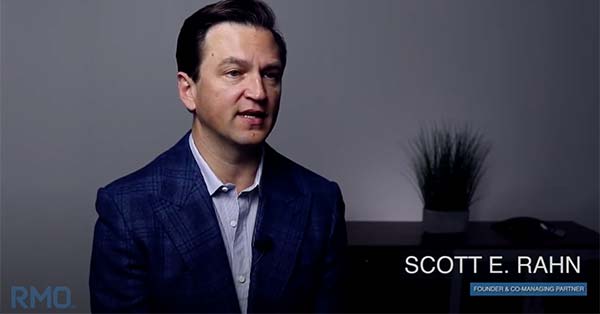TRUST LITIGATION ATTORNEYS FOR TRUSTEES
At RMO Lawyers, we focus on providing comprehensive representation to trustees who may need guidance with trust administration or find themselves embroiled in trust disputes in California and Texas. RMO is dedicated to serving trustees with strategic legal counsel and zealous efficacy tailored to the unique challenges they face in these complex fiduciary roles.
Comprehensive Representation for Trustees in Trust Administration & Litigation
We represent individual trustees, professional private fiduciaries, and trust companies. We understand how to help trustees execute their duties and responsibilities, assuring your trust administration is efficient, so you are protected:
- Explaining trust documents and interplay with trust amendments and restatements
- Assisting with marshaling, inventorying, and appraising assets
- Investigating and responding to creditor claims
- Preparing accountings
- Coordinating with tax and other professionals
- Determining distributions to trust beneficiaries
- Seeking judicial approval of trustee acts or omissions, where necessary
RMO Lawyers is committed to achieving favorable outcomes for our trustee clients whether they are navigating trust administration processes or defending against trust challenges and disputes such as:
Trustee Legal Services
At RMO Lawyers, we offer trustees a full range of legal services to address their needs in trust administration and disputes. Our services include:
- Trustee Guidance: We provide guidance on trust administration duties, ensuring that trustees comply with their complex duties and avoid potential disputes. Additionally, the language in trust documents can be intricate or ambiguous. RMO can help trustees interpret these provisions correctly.
- Dispute Resolution: We can provide legal representation and help resolve disputes among trustees and other parties involved in the trust.
- Defense Representation: We provide trustees with robust defense representation in trust litigation, including allegations of breach of fiduciary duty, theft, undue influence, and misappropriation claims.
- Court Actions: We assist trustees in filing petitions with the court to seek guidance, approval, or other relief related to trust administration or dispute resolution. We also help trustees craft effective responses to petitions filed by beneficiaries or other interested parties, defending against unfounded claims.
Trust Administration Guidance
Trust administration is a multistep process that requires meticulous attention to detail and compliance with legal requirements. Trustees have a fiduciary duty to administer trusts following the terms of the trust instrument and applicable laws. At RMO Lawyers, we offer trustees comprehensive guidance and assistance throughout the trust administration process. From identifying and gathering trust assets to managing investments, paying debts and taxes, and distributing assets to beneficiaries, our attorneys provide trustees with the support they need to fulfill their duties effectively and efficiently.
Trust Dispute Representation
Trust disputes can arise for a variety of reasons, threatening the integrity of the trust and placing trustees in challenging legal situations. Whether facing allegations of breach of fiduciary duty, theft, undue influence, or misappropriation, trustees need experienced legal counsel to navigate these complex disputes. RMO Lawyers has a proven track record of success in representing trustees in trust dispute resolution matters. Our attorneys leverage their extensive knowledge of trust law and litigation strategies to advocate vigorously on behalf of trustees, protecting their interests and achieving favorable resolutions to trust disputes.
Breach of Fiduciary Duty Defense
Allegations of breach of fiduciary duty can have serious implications for trustees, potentially exposing them to personal liability and damaging their reputations. At RMO Lawyers, we understand the complexities of breach of fiduciary duty claims and are committed to providing trustees with strong defense representation. Our attorneys conduct thorough investigations to gather evidence and build compelling defense strategies aimed at refuting allegations and protecting trustees from unwarranted liability.
Theft and Misappropriation Claims
Trustees may also face allegations of theft or misappropriation of trust assets, whether due to intentional wrongdoing or misunderstandings regarding trust administration. These claims can be highly contentious and require skilled legal representation to resolve. RMO Lawyers has extensive experience representing trustees accused of theft or misappropriation, employing strategic legal tactics to refute unfounded claims and protect trustees’ rights.
Undue Influence Allegations
Allegations of undue influence in trust matters can arise when beneficiaries or other interested parties believe that a trustee has exerted improper pressure to influence the trust’s terms or administration. These claims can be challenging to navigate, requiring careful analysis of the facts and legal arguments. RMO Lawyers provides trustees with strong defense representation against undue influence allegations, leveraging our expertise in trust law and litigation to protect trustees’ interests and reputations.
Trust Contest Defense
Challenges to a trust can have serious consequences for trustees, potentially leading to complex legal battles. At RMO Lawyers, we are well-versed in the intricacies of trust contests and are dedicated to offering defense representation for trustees who are facing trust contests. Our attorneys tirelessly investigate the details of each case, gather crucial evidence, and formulate unique defense strategies to counter the contest and safeguard the trustee’s role and responsibilities. Our goal is to ensure the settlor’s intentions are followed and to protect trustees from unfounded claims and ensure the integrity of the trust is maintained.
Trust Proceedings
A trustee or beneficiary of a trust may petition the court regarding the internal affairs of the trust, such as a beneficiary compelling the trustee to report information about the trust or provide an accounting or a trustee determining to whom the trust property will be distributed upon final termination of the trust if not already determined by the trust. The most common trust petitions, including petitions for instructions or removal, can place trustees in uncertain situations, potentially jeopardizing their authority and responsibilities. At RMO Lawyers, we focus on defending trustees facing these petitions or filing petitions on behalf of trustees. Our attorneys conduct thorough analyses of the petitions, gather necessary evidence, and develop strategic defense plans to uphold the trustee’s position and decision-making authority. At RMO, our goal is to ensure that trustees can effectively fulfill their duties while protecting them from unwarranted petition actions.
Trust Accounting Objections
Trust accounting objections can create significant challenges for trustees, questioning their management and financial oversight. At RMO Lawyers, we offer legal defense for trustees facing such objections. Our goal is to demonstrate the trustee’s adherence to fiduciary duties and ensure the accuracy and transparency of the trust accounting, thereby protecting the trustee’s reputation and responsibilities.
Financial Elder Abuse Accusations
Accusations of financial elder abuse are serious and can severely impact a trustee’s legal standing. At RMO Lawyers, we are committed to defending trustees against such allegations with zealous and compassionate representation. When representing a trustee accused of financial elder abuse, whether the settlor is alive or deceased, the attorneys at RMO Lawyers typically perform a thorough investigation, gathering relevant documents and financial records, interviewing witnesses, and engaging experts to provide supporting testimony. We aim to demonstrate the trustee’s adherence to ethical standards and fiduciary responsibilities, protect them from unjust charges, and ensure the integrity of their role in managing the elder’s financial matters.
Do I Need a Lawyer as a Trustee?
While you are not legally required to retain a lawyer to accomplish many of your fiduciary duties as trustee, working with a trust attorney is generally a good idea for professional and family/friend trustees alike, particularly if you have not administered a trust before or you’re unfamiliar with a specific trust or some of its terms. If you have been appointed as a first-time trustee, you should consider partnering with an experienced trust lawyer to assist with the trust administration. At the very least, it is always advisable to meet with an attorney to make sure you understand your duties and obligations as trustee.
Can I Administer a Trust Myself?
Yes, you technically can administer a trust yourself if you have agreed to be a trustee. However, proper trust administration requires that you have a deep understanding of the legal framework of trust law and the financial concepts involved in managing trust assets. Unless you have legal or financial experience, these subjects will probably be unfamiliar to you.
Many of the mistakes we see trustees make stem from them failing to fully comprehend their legal duties and the terms of the trust. In some situations, trustees can be removed or even held personally liable for their missteps. If you’ve been appointed as trustee, the most effective way to ensure that you fulfill your responsibilities properly is to seek guidance from a knowledgeable trust administration lawyer.
What is the Normal Fee for a Trustee?
Under California law, trustees are legally permitted to receive “reasonable compensation” for the services they tender, except when the trust provides different terms. Sometimes, the creator of a trust will provide explicit instructions in the trust instrument for how the trustee will be paid.
California Probate Code §15680 states that trustees are legally entitled to be paid according to the terms of the trust. The trust instrument may state that the trustee will be paid an hourly rate or a flat fee. Some trusts also allow the trustee to collect a specific percentage of the value of the trust property. If the trust document does not address trustee fees, California Probate Code §15681 is the default and allows the trustee to be paid reasonable compensation.
When Should I Contact a Trust Litigation Attorney?
We recommend that first-time trustees contact a trust attorney as soon as they are appointed, especially if it’s your first time serving as a trustee. A trust administration lawyer can explain the instructions in the trust document, advise you on your legal duties, and guide you through the trust administration process.
As Trustee, Why Choose RMO Lawyers?
At RMO Lawyers, we prioritize client-centered advocacy, recognizing the unique challenges and concerns faced by trustees in estate and trust disputes. We never lose sight of who you are, your goals, and your bottom line. From your first call to RMO Lawyers, we will take the time to hear you, understand the family dynamics and personalities that drive your case, learn the facts, do the diligence, and construct a real-world strategy designed to drive your case to a better result sooner. You get a result that not only adds to your bottom line, but your peace of mind.
At RMO, our probate lawyers and trust litigation attorneys have the experience to effectively assist our clients, whether trustees, beneficiaries, heirs, creditors, or other interested parties. Many of our attorneys have been recognized by Super Lawyers, AVVO, Best Lawyers, and Martindale-Hubble as the best in Los Angeles, Pasadena, Orange County, San Diego, Fresno, the Bay Area, Dallas, and Houston.
Schedule Your Free Consultation
If you are a trustee involved in a trust dispute in California or Texas, don’t navigate the complexities of the legal system alone. Contact RMO Lawyers today to schedule a consultation with one of our experienced attorneys.
Learn More
How Much Should a Trustee Be Paid in Fees?
Trustees are tasked with the trying —and often thankless— job of managing trust assets to benefit the trust’s beneficiaries. In exchange for their services, California Probate Code §15681 allows trustees to receive “reasonable compensation.” However, if the trust document itself specifies different pay arrangements, then under Probate Code §15680, trustees are legally entitled to be …How Do You Protect Yourself As a Trustee?
How do you protect yourself as a trustee? The first step is to take the time and learn more about what you are signing up for. Do your research, ask questions, consult a trust attorney, and ensure you understand the duties and obligations that need to be fulfilled as trustee. Your legal liabilities can be …PRACTICE AREAS
We have decades of experience getting results for people like you. Our team will listen to you, investigate your claims, develop a strategy aimed at accomplishing your goals efficiently and cost-effectively, whether that’s through negotiated resolution, formal mediation or trial, so that you can move on with your life. Schedule a free consultation, or give us a call.
TRUST LITIGATION
We represent beneficiaries, heirs, administrators, executors, trustees and conservators/conservatees in cases involving disputing a will or trust, claims of breach of fiduciary duty, fiduciary misconduct and fraud, investment mismanagement, financial elder abuse, incapacity, and undue influence.
PROBATE ESTATE LITIGATION
Stepping into the role of “Personal Representative” to handle your loved one’s trust, will, or probate estate can be an overwhelming experience. We have decades of experience helping individual and institutional administrators, executors, and trustees fulfill all their duties efficiently and cost-effectively. Although just a summary, below are many of the things we can help you with, and we’re always happy to answer your questions.
CONSERVATORSHIPS
When your loved one is incapable of handling their affairs, whether financial or their own care, it may be time to consider a judicial conservatorship of the person (personal health and welfare of the conservative) or conservatorship of the estate (care of the conservatee’s finances), especially where your loved one may be the subject of financial or elder abuse. Often family members believe that a power of attorney or healthcare power may be sufficient, but often they are wrong. Sadly, even more often the person who holds those powers is the one abusing the loved one. Whether you need help analyzing whether a conservatorship is warranted, or need help defending against a frivolous conservatorship action, we can help.
FINANCIAL ELDER ABUSE
Financial elder abuse is one of the fastest growing areas of law, affecting one of the most vulnerable sectors of our society. California’s elder abuse statutes provide extra protections to those 65 years of age and older who were victimized by the fraud or theft of another, most often a “loved one” who takes advantage of mom, dad, aunt, uncle, grandma or grandpa’s incapacity. We have successfully prosecuted and defended hundreds of financial elder abuse cases.
Our Case Results
RMO has a proven track record of protecting people and defending legacies.
FROM THE BLOG

The Guide to Family Trust Embezzlement and Stealing
Family trust embezzlement and stealing is more common than you might think. At RMO Lawyers, we investigate, prosecute and defend these claims every day…

The Penalty for Stealing from an Estate
When an abuser steals from an estate, the penalty can be as little as simply returning the stolen monies or assets to the trust or estate. However, the California Probate Code does…

What does a probate lawyer do?
When a person passes away, their assets must be disbursed in a manner consistent with state laws and following the directions they put forth when they were alive…
SCHEDULE A FREE CONSULTATION
Be advised that the RMO Client Relations Team will reach out prior to your scheduled time, as our policy requires that we gather additional information concerning the parties to your case before we can confirm your consultation. In the event that we are unable to reach you, regrettably, we will need to cancel your requested consultation.
Communication Disclaimer
Please note that communications by you to RMO LLP or any of its lawyers through this website do not create an attorney-client relationship between you and the firm. Do not send any privileged or confidential information to the firm through this website or otherwise until instructed in writing from us to do so.

